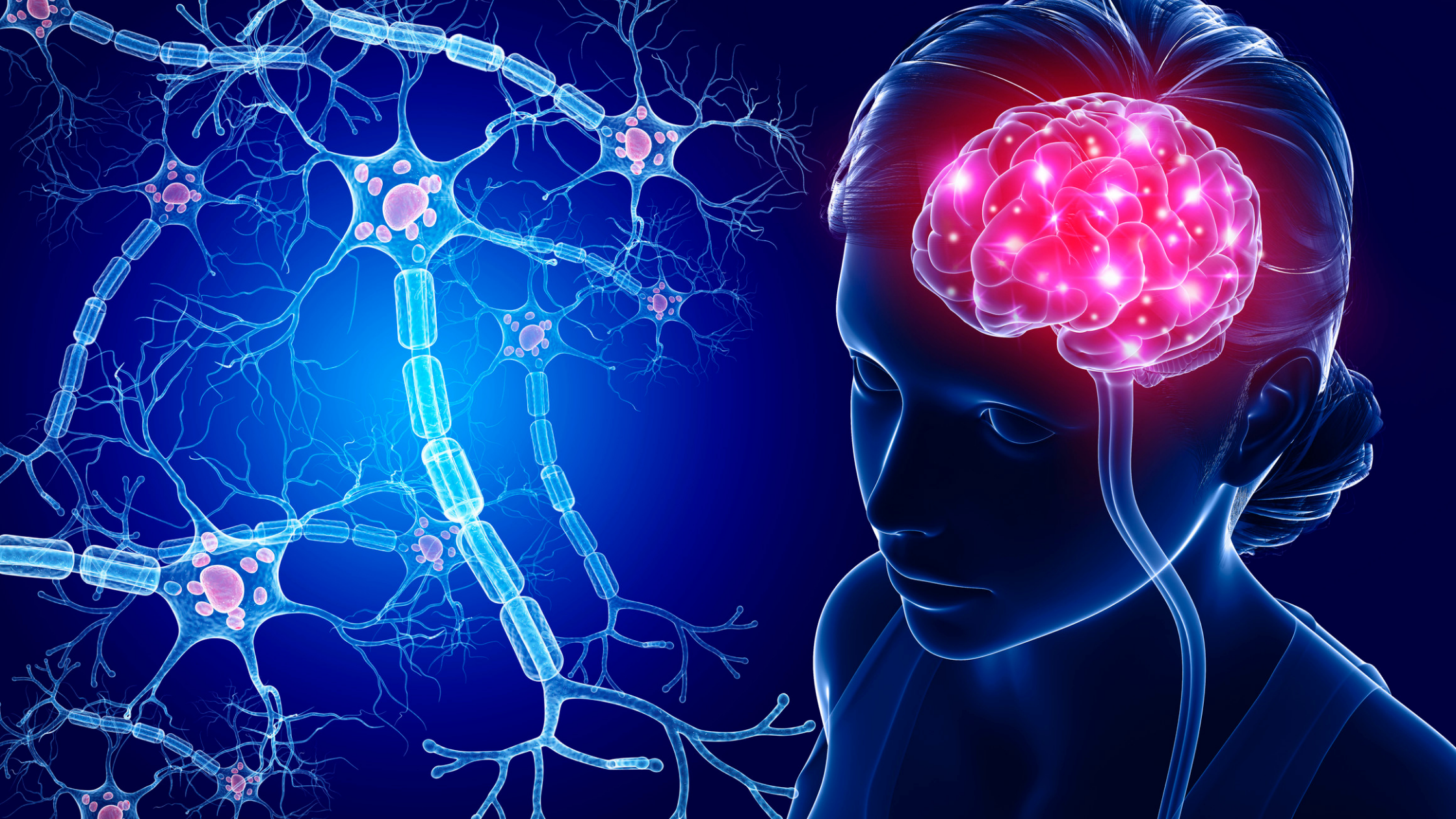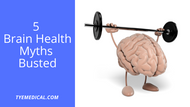Ditch These 5 Brain Health Myths to Keep Your Mind Sharp
Written by TYE Medical on Jan 31st 2022
You’re probably familiar with many ways to keep your brain healthy, and most of them also benefit your overall health. The standard advice includes getting plenty of exercise, enough quality sleep, drinking alcohol moderately, not smoking, eating plenty of whole grains and produce, and staying socially active.
As simple as it seems, some misconceptions about brain health can derail your good intentions. We’ll look at some of the most common brain health myths and what you can do to protect your gray matter.
1. Myth: Gingko Biloba Increases Brainpower

While it’s true that nutrition boosts brain health, most supplements are just marketing hype. Instead, focus on healthy whole foods and include at least one serving of fish in your diet weekly. A study of people over age 65 showed higher levels of gray matter in the hippocampus for those who ate fish for one meal per week. Many doctors recommend the Mediterranean diet because it’s rich in produce, whole grains, fish, and healthy fats.
But be sure to add berries to your diet as well, because some research suggests they slow cognitive decline. This is likely because they contain high levels of antioxidants and anti-inflammatory flavonoids.
2. Myth: You Can’t Do Anything About a Bad Memory
Even if your poor memory has given you a bad reputation, you can still revamp your brainpower. In addition to the general recommendations above, you can build your cognitive muscles (figuratively speaking) with crossword puzzles or learning a new but somewhat challenging hobby.
It also helps to stay active, specifically through aerobic exercise which boosts memory and blood flow to the brain. According to the Journal of Alzheimer’s Disease, people with memory problems who participated in aerobic exercise for a year had a 47% improvement in memory scores.
3. You Can’t Prevent Dementia, Especially If It Runs In Your Family

It’s true that aging is the biggest dementia risk factor, but there are always additional causes. Improving your lifestyle habits is the best thing you can do to ward off looming cognitive decline or delay its development. What lifestyle habits? Eating a healthy diet, staying active, and maintaining social connections—all those key factors for boosting brain power—are your best protection against future dementia.
According to a 2020 report, 40% of all dementia cases could be linked to risk factors like social isolation, alcohol use, physical inactivity, and high blood pressure.
4. Some People Don’t Need More Than Four Hours of Sleep
Some people might feel fine with just a few hours of sleep, but it affects their brain health and function whether they realize it or not. Most healthy adults need at least seven hours of sleep, because seep is about more than just rest. Think of it as defragmenting your brain by creating new memories and consolidating old ones. A good night’s rest will help you better remember facts and events from the previous day, which is a great way to boost both memory and learning.
More importantly, sleep is crucial for dementia prevention, because this is when your brain cleans away all those toxic proteins that crowd your brain during waking hours. These proteins are considered the primary cause of dementia and Alzheimer’s. For more information about how to get better sleep, read our article, Feel Like the Walking Dead? Get Better Sleep with These 7 Tips.
5. Everyone Is Equally Susceptible to Dementia

Dementia doesn’t affect everyone equally since some people have more inherent risk. Poverty is a risk factor because it restricts access to adequate health care and a healthy, whole foods diet. High blood pressure and diabetes also increase the likelihood of cognitive decline. Additionally, more than two-thirds of people with Alzheimer’s are women. This is likely because verbal dementia screening tests aren’t as effective for women, making early diagnosis more difficult.
If you are at higher risk, be sure to get screened early.
Dementia and Incontinence Have Common Risk Factors
You’re more likely to develop cognitive diseases and bladder leaks with age and diabetes. This is because your bladder changes with age mostly due to hormones and a weakened pelvic floor. And the weight gain and nerve damage associated with diabetes also impact your bladder in inconvenient ways.
While you can’t do much about aging or a diabetes diagnosis, you can minimize other risk factors and manage bladder leaks effectively.
TYE Medical offers a line of premium products designed with maximum protection and comfort as key features. Whether you need protection against lighter leaks or battle with more moderate or heavy incontinence, you can find a product to suit your needs.
Be sure to learn about our Two-Piece System for moderate or heavy bladder leaks. Shop our online store for discreet and free shipping.


